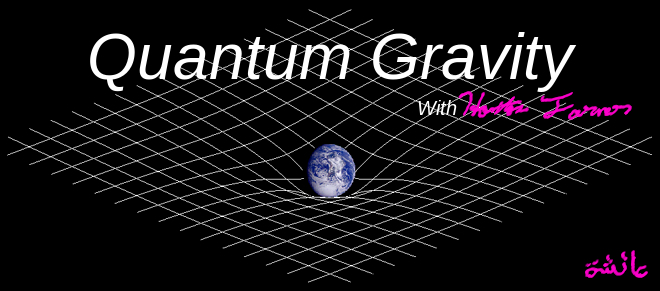In a paper posted to the arXiv a few days ago Stephen W. Hawking the preeminent expert on black holes argued quite effectively that given what we know about quantum gravity they don't exist. Quantum theory allows for matter and energy to escape from a black hole albeit very slowly, and scrambled up. In fact this process has been known for a very long time and is named "Hawking radiation".
His latest argument takes the concept a step farther by getting rid of one of the defining aspects of a classical black hole, the "event horizon." For those of you from Rio Linda, Stephen W. Hawking formerly the Lucasian Professor of Mathematics at Cambridge. He is the author of many books including "A Brief History of Time". This physically disabled mental superman scientist, immortalized on the Simpsons as that "wheel chair guy" when Homer was faced with a black hole was the public face of a scientist in the 90's and 00's. He has since taken a back seat but is still a very productive theorist and agent provocateur of new thought.
His latest paper on the arXiv is along those lines meant to provoke other researchers into thinking differently about issues some consider nearly settled. Black holes, Quantum Gravity (in certain limits at least), and perhaps other related areas of theory. It does not contain any equations but he does discuss some very advanced concepts. In doing so he argues effectively that black holes in the sense of regions from which escape is impossible don’t exist.
The following graphic explains the idea.
.png)
A classical black hole is characterized by its mass,effective surface charge, and angular momentum.
From its mass we can determine a radius around the center of the hole from which not even light may escape. This classical radius is called the Schwarzschild radius. At this radius there exist a classical event horizon. Classically anything that is closer than Rs is trapped forever.
Hawking points out that quantum mechanically the horizon will fluctuate. Hawking refers to this fluctuating horizon as the true horizon and the horizon at Rs as the apparent horizon.
Where the fluctuating horizon dips below the apparent horizon, a.ka. the classical event horizon a particle or quantum of light may escape to infinity. Therefore “blackholes” as thought of classically don’t really exist. Matter will be shredded but not destroyed.
Hawking even goes as far as to claim that the “quantum singularity” as we now think of it may not even exist.
Fringe and frontier theories of quantum gravity have claimed that a black hole need not be the all destroying point of no return for years now. In particular theories of the Loop Quantum Gravity variety. In these theories a black hole is a very particular region of quantum space-time and nothing more. Theories such as ADS/CFT which Hawking references … theories that maintain a correspondence between the information available in the surface of a black hole and its contents have hinted at this possibility. What Prof.Hawking has done is bravely state that given what we now know and agree on about quantum gravity classical black holes simply don’t exist.
That’s not to say you would want to jump into one. You would only ever come out one quantum particle at a time over the next several tens of billions of years. Though I agree with Hawking on this matter in the classical sense black holes are very real. If any bit of matter large enough for you to see enters a black holes apparent horizon it is effectively gone. It's electrons, photons, neutrons, and protons may eventually be radiated out and that's it.
One more thing: Stephen W. Hawking is not an endorser for arXiv. As of this writing when one clicks the link to see which authors of Hawking's paper are endorsers to the arXiv it says Hawking isn't one. It is often said that the endorsement system for arXiv is 100% transparent and sensible. It is claimed that people who are known active researchers are given endorsement automatically. How then is someone like Prof. Hawking not one? This matters for us scientist since the arXiv is the defacto, accepted medium of first report for developments in physics and allied sciences. That he is not an endorser gives credence to the complaints of those who feel the system used to run the arXiv is too opaque and may be too easily abused.
I mean really…what chance does a mere mortal have when someone who could in theory have gotten a Nobel prize for some of his various works can’t get arXiv’s blessing? If anyone would be endorsed on their own recognizance it should be him.
I'd like to thank my friend Michael Ramstedt for bringing Hawking's paper to my attention. I've been too preocupied with preparing to teach astronomy at the community college level. It's not the Lucasain Chair...but it's still an honor.
(Yes I originally spelled Stephen as Steven because that's what it sounds like and how it would be spelled if he were an American. Oops. Darn British spelling.)



Comments